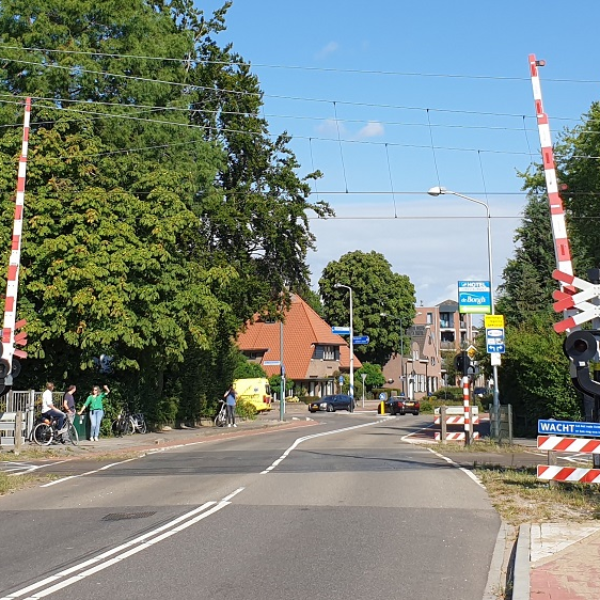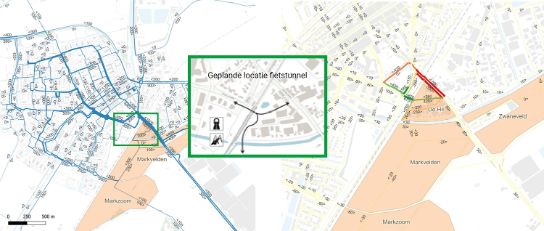Impact of new bicycle tunnels on safety of railway crossings
Municipality of Moerdijk

Impact of new bicycle tunnels on safety of railway crossings
Due to the development of the Logistics Park Moerdijk (LPM) in combination with a housing development study, the Moerdijk municipality has decided to develop Zevenbergen East for housing. On these sites 900 to 1,150 houses will be built, diveded across three development sites. The development of Zevenbergen East will create new traffic movements to and from Zevenbergen centre, including bicycle traffic. The design of Zevenbergen East includes the expansion of the (bicycle) infrastructure, including two tunnels under the railway line. This means that the current railway crossings will be used differently. As a requirement from ProRail, a risk analysis must therefore be carried out to assess the safety risks of the new situation. The Bicycle Traffic Monitor has been used to map the impact of the planned developments on the traffic system and specifically the railway crossings for the existing and (potential) future variants.
Setting up bicycle traffic model with the Bicycle Traffic Monitor
The Bicycle Traffic Monitor first mapped the current situation for bicycles. Using public data, the Bicycle Traffic Monitor visualises bicycle flows. These bicycle flows have been validated with local counts and adjusted accordingly. Next, the future situation was mapped. Therefore, the planned housing construction was included in the spatial layout and different network variants were added to the bicycle network. For all network variants, the expected bicycle flows were determined and compared with the baseline situation, which does include the planned housing development but without the proposed network changes.

Risk analysis of railway crossings
The Bicycle Traffic Monitor depicted both current and future use of railway crossings in Zevenbergen. The Bicycle Traffic Monitor visualises the bicycle flows, the use of specific railway crossings and the solving capacity of different variants of a bicycle tunnel near Zevenbergen station. Part of the bicycle traffic will no longer have to use the risky railway crossing. This allows the municipality to substantiate the impact of the planned housing construction in figures and make a solid decision on the construction of a bicycle tunnel.

Additional benefits of applying the Bicycle Traffic Monitor
The Bicycle Traffic Monitor applies the bicycle traffic model to support the risk analysis. This arises the question of who would use the possible bicycle tunnel and how the costs of that tunnel should be allocated to housing developments. To this end, the Bicycle Traffic Monitor carried out a selected-link analysis using the bicycle traffic model. This analysis determined what proportion of future bicycle flows through the planned cycle tunnel has one of the development locations as its origin or destination. This results in a clear map visualising the distribution of bicycle traffic across the planned housing development locations. The map below shows that 40% has an origin/destination in Markvelden, 21% in Zwaneveld and the remaining 39% is 'through-traffic bicycle flows'.

Bicycle Traffic Monitor

More information?
Sander, a traffic data scientist, is the Bicycle Traffic Monitor's inventor, developer and product owner.

